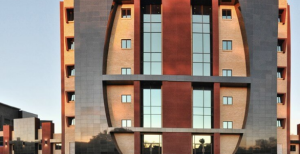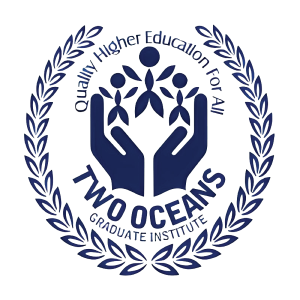The Essentials
Type of Institution: University
Fees per module: R1 815,00 to R7 550,00
Address: Preller Street, Muckleneuk Ridge, Pretoria, South Africa
Phone Number: 0800 00 1870
Chancellor: Dr Thabo Mvuyelwa Mbeki
Vice Chancellor: Prof Puleng LenkaBula
Number of students: 420 000+
Website: https://www.unisa.ac.za/
Email: enquire@unisa.ac.za
Table Of Contents
- Overview
- Contact Details
- Address
- Location
- School Fees
- Courses & Programs
- Vacancies and Entry Requirements
- Logo
- Notable Alumni
- Pros and Cons
- Author’s Review
Overview
The University of South Africa (UNISA) is the largest university in Africa and one of the largest in the world in terms of student enrollment. Founded in 1873, UNISA is a distance education institution, offering a wide range of programs to students globally. It is renowned for its flexible learning methods and is a leader in open distance learning (ODL).
Distance Education Leader
UNISA specializes in open distance learning, making higher education accessible to students from around the world. Students can study remotely, using a combination of online resources, printed materials, and face-to-face tutorials (in some regions). The university serves over 350,000 students in 130 countries, offering flexible study schedules and extensive student support services.
Research and Innovation
UNISA places a strong emphasis on research, with several research institutes and specialized centers across its colleges. Areas of focus include sustainable development, climate change, technology and innovation, and social justice.
Accreditation and International Recognition
UNISA is accredited by the South African Department of Higher Education and Training and internationally recognized by universities, institutions, and professional bodies worldwide. This makes its qualifications respected both in South Africa and globally.
Student Support
To accommodate distance learners, UNISA provides various student support services such as online learning platforms, study centers, counseling services, and library access. The myUNISA portal serves as the main platform where students can access learning materials, submit assignments, and engage with tutors.
Alumni and Impact
UNISA boasts a large and diverse alumni network, with graduates holding influential positions in government, business, academia, and non-profit sectors. Famous alumni include figures like Nelson Mandela and several former South African presidents.
Learning Experience
UNISA’s distance education model combines self-directed study with support tutorials and online assessments. Students have access to course materials through the myUNISA portal, where they can participate in discussion forums, access learning guides, and interact with lecturers and fellow students.
University of South Africa Contact Details
You can contact University of South Africa via their landline, email or you can visit their website for further contact details.
Phone Number: 0800 00 1870
Website: https://www.unisa.ac.za/
Email: enquire@unisa.ac.za
University of South Africa Address
Preller Street, Muckleneuk Ridge, Pretoria, South Africa
University of South Africa Location
University of South Africa has multiple campuses in the country, and then the main campus is located in the suburb of Muckleneuk Ridge in the city of Pretoria on Preller Street.
University of South Africa Fees
University of South Africa’s fees is currently standing at R1 815,00 to R7 550,00 per module depending on the program you are studying and the level of degree you are studying. Please contact the institution or visit them to get the latest fees structure as it can change at any term or semester.
University of South Africa Courses & Programs
The University of South Africa (UNISA) offers a vast range of undergraduate, postgraduate, and professional programs across various disciplines.
College of Accounting Sciences
Undergraduate Programs:
Bachelor of Accounting Sciences (General, Financial Accounting, Internal Auditing, or Management Accounting)
Postgraduate Programs:
Postgraduate Diploma in Accounting Sciences
Honours Bachelor of Accounting Sciences
Master of Accounting Sciences
PhD in Accounting Sciences
College of Agriculture and Environmental Sciences
Undergraduate Programs:
Diploma in Animal Health
Bachelor of Science in Agriculture
Bachelor of Science in Life and Environmental Sciences
Postgraduate Programs:
Postgraduate Diploma in Nature Conservation
Honours Bachelor of Science in Agriculture
Master of Science in Agriculture/Environmental Science
PhD in Environmental Science or Agriculture
College of Economic and Management Sciences
Undergraduate Programs:
Bachelor of Commerce (General)
Bachelor of Business Administration
Bachelor of Commerce in Economics
Bachelor of Commerce in Finance, Business Informatics, Human Resource Management, and more
Postgraduate Programs:
Postgraduate Diplomas (Business Administration, Risk Management, Financial Management)
Honours Bachelor of Commerce (various specializations)
Master of Business Leadership (MBL)
Master of Business Administration (MBA)
PhD in Economics, Business Management, or Public Administration
College of Education
Undergraduate Programs:
Bachelor of Education (Foundation Phase, Intermediate Phase, Senior & FET Phase)
Diploma in Grade R Teaching
Postgraduate Programs:
Postgraduate Certificate in Education (PGCE)
Honours Bachelor of Education
Master of Education
PhD in Education
College of Human Sciences
Undergraduate Programs:
Bachelor of Arts (General)
Bachelor of Arts in Communication Science
Bachelor of Social Work
Bachelor of Theology
Postgraduate Programs:
Honours Bachelor of Arts (various specializations like Psychology, Sociology, Languages, etc.)
Master of Arts (Humanities, Languages, Psychology, Sociology, and more)
PhD in the Humanities (Philosophy, Sociology, Religious Studies, Psychology)
College of Law
Undergraduate Programs:
Bachelor of Laws (LLB)
Higher Certificate in Law
Diploma in Law (Paralegal Studies)
Postgraduate Programs:
Postgraduate Diploma in Labour Law
Master of Laws (LLM)
Doctor of Laws (LLD)
College of Science, Engineering, and Technology
Undergraduate Programs:
Bachelor of Science in Computing
Bachelor of Science in Environmental Management
Bachelor of Science in Mathematics and Applied Mathematics
Bachelor of Science in Life Sciences
Diploma in Information Technology
Postgraduate Programs:
Honours Bachelor of Science (various specializations)
Master of Science in Computer Science, Environmental Science, Mathematics
PhD in Science (Physics, Chemistry, Environmental Science, and more)
College of Graduate Studies
Focused on facilitating interdisciplinary postgraduate research and professional development.
Offers support and guidance for Master’s and PhD students across all disciplines.
College of Open Distance Learning
Short Learning Programs: Provides a wide range of short courses for professional development, such as:
Strategic Management
Project Management
Risk Management
Marketing
Financial Management
Additional Programs:
Extended Learning Programs: Non-degree programs designed to help students gain entry into degree courses.
Short Learning Programs: Professional and career-focused courses aimed at skill enhancement in fields like finance, IT, business management, and environmental sciences.
University of South Africa Vacancies and Entry Requirements
Undergraduate Entry Requirements
To be admitted to UNISA’s undergraduate programs, you generally need to meet the following requirements:
National Senior Certificate (NSC) or Senior Certificate (prior to 2008) with admission to bachelor’s degree studies.
A minimum of 30 points (calculated using UNISA’s APS system), although some programs may have higher requirements.
Additional requirements may apply for specific programs:
Mathematics is required for programs in Science, Engineering, Commerce, and Technology.
English at NSC Level 4 (50%) or higher.
Certain programs (e.g., Law or Education) may have specific subject requirements.
Postgraduate Entry Requirements
For postgraduate programs (Honours, Master’s, and Doctoral), the requirements vary by level and program:
Honors Programs: A completed Bachelor’s degree in a relevant field with a minimum average of 60%-65% in the final year of undergraduate study.
Master’s Programs: A completed Honours degree or equivalent qualification in a relevant field. In some cases, work experience or research proposals may be required for admission to research-focused programs.
Doctoral Programs: A completed Master’s degree in a relevant discipline.
Candidates are typically required to submit a research proposal for approval by the department.
International Students Entry Requirements
International students must meet the equivalent of South African requirements for admission.
Equivalent qualification to the South African National Senior Certificate (NSC).
English Language Proficiency: Proof of English language proficiency (e.g., TOEFL or IELTS) may be required if the student’s previous studies were not conducted in English.
Evaluation of Foreign Qualifications: International qualifications must be evaluated by the South African Qualifications Authority (SAQA).
Additional Admission Information
Selection Programs: Some programs, such as in Education, Law, and Health Sciences, have limited spaces and require students to go through a selection process based on merit.
Application Process:
All students must apply online through the UNISA website.
Applications usually open around September for the following academic year.
Students are required to submit certified copies of qualifications, identification documents, and any other required materials.
Extended Learning and Access Programs
UNISA offers Higher Certificates and Extended Programs for students who do not meet the full entry requirements for a bachelor’s degree.
University of South Africa Logo
Below is the logo of University of South Africa with excellent quality and it is available to download in PNG (transparent file) JPEG and PDF.
UNISA Logo
University of South Africa Logo
University of South Africa Notable Alumni
Nelson Mandela – first president of South Africa
Robert Mugabe – Prime Minister of Zimbabwe from 1980 to 1987 and then as President from 1987 to 2017.
Desmond Tutu – South African Anglican bishop and theologian, known for his work as an anti-apartheid and human rights activist.
Julius Malema – South African politician who is the founder and leader of the Economic Freedom Fighters (EFF)
Thabo Mbeki – second president of South Africa from 14 June 1999 to 24 September 2008
Mmusi Maimane – South African politician, businessman, and leader of Build One South Africa
Winnie Madikizela-Mandela – South African anti-apartheid activist and politician, and the second wife of Nelson Mandela.
Kevin Pietersen – English cricket commentator, conservationist, and former England international captain.
Jean-Bertrand Aristide – former Salesian priest and politician who became Haiti’s first democratically elected president.
University of South Africa Pros and Cons
Pros
Distance Learning Flexibility: Unisa is renowned for its distance education programs, allowing students to study from anywhere and balance their studies with work or other commitments.
Wide Range of Programs: The university offers an extensive array of undergraduate, postgraduate, and doctoral programs across various fields, catering to a broad spectrum of academic and professional interests.
Affordable Education: Unisa’s tuition fees are generally lower compared to many traditional universities, making higher education more accessible to a larger number of students.
Support for Working Professionals: The flexible study options are particularly advantageous for working professionals seeking to further their education without disrupting their careers.
No Geographic Constraints: Students from across South Africa and internationally can access quality education without needing to relocate, thanks to Unisa’s robust online and correspondence learning systems.
Strong Academic Reputation: Unisa is well-regarded for its academic rigor and has a long history of providing quality education in South Africa.
Diverse Student Body: The university’s open admissions policy and online format attract a diverse student population, enriching the learning experience with varied perspectives.
Resources and Support: Unisa provides students with access to online resources, libraries, and academic support services to aid their studies and research.
Innovative Learning Platforms: The university uses modern digital tools and platforms to facilitate learning, including online forums, virtual classrooms, and electronic submissions.
Cons
Limited Face-to-Face Interaction: The distance learning model means fewer opportunities for in-person interaction, which can affect networking and direct engagement with peers and instructors.
Self-Discipline Required: Distance learning requires a high degree of self-motivation and time management, which can be challenging for students who struggle with independent study.
Potential for Isolation: Students may experience a sense of isolation due to the lack of physical campus presence and face-to-face interactions with classmates and faculty.
Administrative and Technical Issues: Some students report challenges with administrative processes, including registration, grading, and technical difficulties with online platforms.
Limited Campus Facilities: As a distance-learning institution, Unisa lacks traditional campus facilities such as libraries, labs, and recreational amenities, which may be important for some students.
Delayed Feedback: Feedback on assignments and exams can sometimes be delayed due to the volume of students and the nature of distance education.
Less Emphasis on Practical Experience: Certain programs may offer less opportunity for hands-on practical experience compared to traditional universities with physical labs and workshops.
Dependence on Technology: Students need reliable internet access and digital literacy to effectively engage with the coursework and online resources, which can be a barrier for some.
Program Recognition: While Unisa is well-respected in South Africa, some international employers and institutions may be less familiar with the university’s qualifications compared to those from more traditional universities.
Author's Review
The University of South Africa (Unisa) stands out as a leading institution in distance education, offering a diverse range of programs with the flexibility to accommodate students’ varied schedules and locations.
Its affordability, extensive program offerings, and strong academic reputation make it an attractive option for many, particularly for working professionals and those seeking a non-traditional educational path. The ability to study from anywhere in South Africa or globally, without the need for relocation, is a significant advantage for many students.
However, the distance learning model does present certain challenges, such as limited face-to-face interaction, the need for high self-discipline, and potential feelings of isolation. Additionally, technical issues and administrative delays can sometimes impact the overall student experience.
Overall, Unisa provides a robust and accessible education system that is well-suited to individuals who are self-motivated and capable of managing their studies independently. For those who thrive in an online learning environment and are prepared to navigate the unique aspects of distance education, Unisa offers a valuable opportunity to advance academically and professionally.



